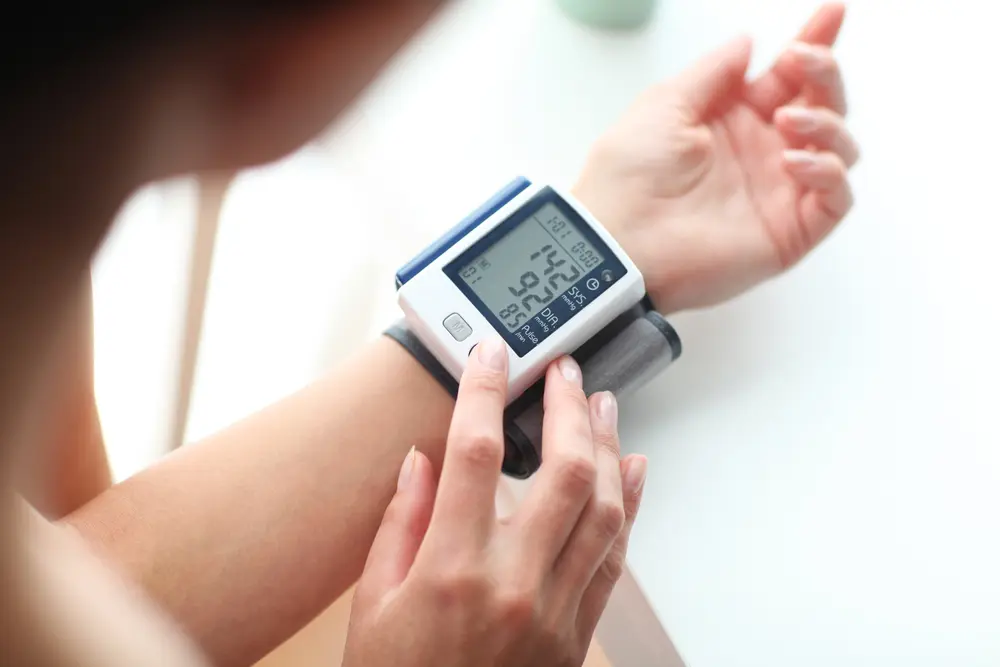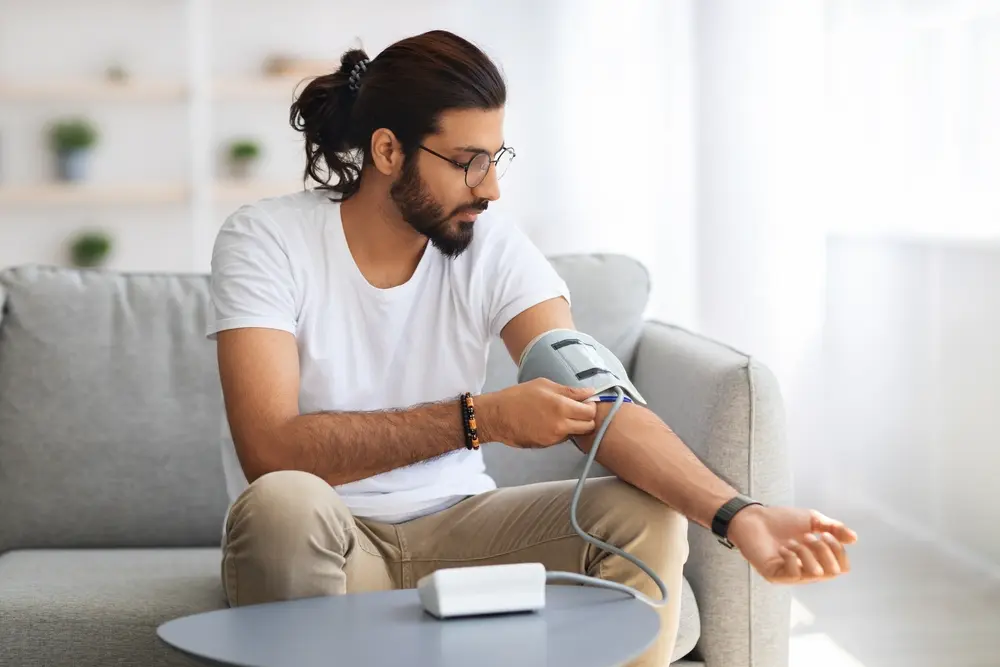


Hypertension, commonly known as high blood pressure, affects millions of people worldwide and can cause significant damage to the body. It is often referred to as the “silent killer” as it usually has no symptoms until some damage has occurred.
High blood pressure can lead to heart disease, kidney failure, stroke, and other serious health problems. Therefore, it’s important to understand all about it and how to handle it.
There are several ways to manage hypertension. While doctors will prescribe medication to manage the ailment, it also requires a commitment to taking the prescribed medicines diligently and making lifestyle changes. Regular exercise, healthy eating, reducing salt intake, and quitting smoking can help.
Let’s explore why hypertension is to be watched out for, including its risks and associated complications. It’s also worth looking at the various ways to handle the disease. By being aware of the dangers of letting blood levels go out of control, and learning how to manage the problem, we can reduce the risk of complications and lead healthier lives.
Hypertension is a condition where the force of blood (i.e., blood pressure) against the walls of the arteries is consistently too high. This can damage blood vessels and organs over time, including the heart, kidneys, brain, and eyes.
High blood pressure usually has no symptoms until some significant or noticeable impairment has occurred.
However, some people may experience symptoms like headaches, shortness of breath, nosebleeds, and vision changes. The condition is usually diagnosed through routine blood pressure checks and managed with lifestyle changes and medication.
Is hypertension curable? According to the Nicole Rowe, MD, writing in GoodRX Health, “If you have been diagnosed with hypertension, it is natural to wonder if you are going to have it for the rest of your life — or if there is something you can do to reverse it. In almost all cases, high blood pressure can be lowered to normal levels. For some, this requires medication. But for others, a cure might be possible depending on what is causing their high blood pressure.”
Hypertension, or high blood pressure, can be detrimental to health for several reasons:
High blood pressure can damage the lining of arteries, leading to plaque buildup that narrows the blood vessels and restricts blood flow. According to CDC (Centers for Disease Control and Prevention), this can increase the risk of heart disease, heart attack, and stroke. Regular monitoring of blood pressure, making necessary lifestyle alterations, and taking medication can help lower the risk of these conditions.
According to the National Institute of Diabetes and Digestive and Kidney Diseases, hypertension puts extra strain on the kidneys, which can cause damage to the blood vessels and eventually lead to kidney disease and kidney failure. Early detection and management of hypertension can help protect the kidneys and prevent complications.
According to the Mount Sinai Medical Center, increased blood pressure can damage the blood vessels in the eyes, leading to vision problems or even blindness. Regular eye exams can detect hypertension-related eye problems. Managing blood pressure can help prevent or slow down further damage.

Elevated blood pressure can damage the small blood vessels in the brain. According to John Hopkins Medicine, this can increase the risk of cognitive decline, including dementia and Alzheimer’s disease. Maintaining healthy blood pressure levels can help reduce this risk.
According to Brindles Lee Macon et al., writing in Healthline, hypertensive patients can have an increased risk of aneurysm formation, a potentially life-threatening condition where an artery wall weakens and bulges out. Managing hypertension can help prevent aneurysm formation and reduce the risk of rupture.
Hypertension can cause the arteries in the legs and arms to narrow. According to Cleveland Clinic, this can reduce blood flow and cause peripheral artery disease. Managing hypertension can help prevent this condition and its complications.
According to Suraj Kapa et al., writing in the American Heart Association Journals, blood pressure of high levels is associated with an increased risk of sleep apnea. In this condition, breathing is interrupted during sleep. This can cause fatigue, headaches, and other symptoms. Managing hypertension can help reduce the risk of sleep apnea and its associated complications.
According to the American College of Obstetricians and Gynecologists, a rise in blood pressure during pregnancy can cause complications for both the mother and baby, including preeclampsia, premature birth, and low birth weight. It’s essential to monitor and manage blood pressure during pregnancy to reduce the risk of these complications.
When you have a combination of several chronic health illnesses such as obesity, cholesterol, diabetes, and hypertension (along with other hereditary factors), they can all have a multiplicative effect on the heart.
In such cases, your doctor will usually be extremely careful to monitor and manage the various issues – like prescribing a diet to reduce cholesterol, watching out for obesity-related diseases, checking for early signs of diabetes, or exploring ways to control blood pressure.

There are several ways to handle hypertension or high blood pressure. However, this is not something to try and treat on your own, so you will need your doctor’s help.
According to Mayo Clinic, your doctor may check against a goal level of blood pressure, as dictated by your age and other medical factors.
A doctor may prescribe antihypertensive medications to help lower blood pressure. Different medications include diuretics, ACE inhibitors, angiotensin receptor blockers (ARBs), beta-blockers, and calcium channel blockers. The choice of medication will depend on several factors, including the patient’s age, underlying health conditions, and potential side effects.
A healthy diet can help manage hypertension. The Dietary Approaches to Stop Hypertension (DASH) diet, which emphasizes fruits, vegetables, whole grains, and lean protein, has been shown to be effective in lowering blood pressure. Limiting processed foods and avoiding foods high in saturated and trans fats is also recommended.
Regular physical activity can help lower blood pressure, reduce stress, and improve overall health. Aim for at least 150 minutes of moderate-intensity exercise each week, such as brisk walking, cycling, or swimming. Before starting an exercise program, talking to a doctor is important, especially if you have other health conditions.
Lifestyle modifications can help reduce blood pressure and lower the risk of developing complications. These changes include maintaining a healthy weight, reducing salt intake, limiting alcohol consumption, quitting smoking, and managing stress. Changing the way you live can be challenging but is crucial in managing hypertension.
Regular monitoring of blood pressure is essential in handling hypertension. This can be done at home – or ideally at the doctor’s clinic. Patients should have regular check-ups with their doctor to also assess medication effectiveness, and adjust the treatment plan as needed.
Heart disease is the leading cause of mortality worldwide, and hypertension significantly contributes to this. Therefore, managing hypertension is not just about managing blood pressure but also reducing the risk of heart disease. By avoiding unhealthy habits, taking medication as prescribed, and regularly monitoring blood pressure, patients can manage hypertension and reduce the risk of complications associated with heart disease. Working closely with a doctor to manage hypertension and your heart. Stay heart-healthy. Be a Zinda Dil.